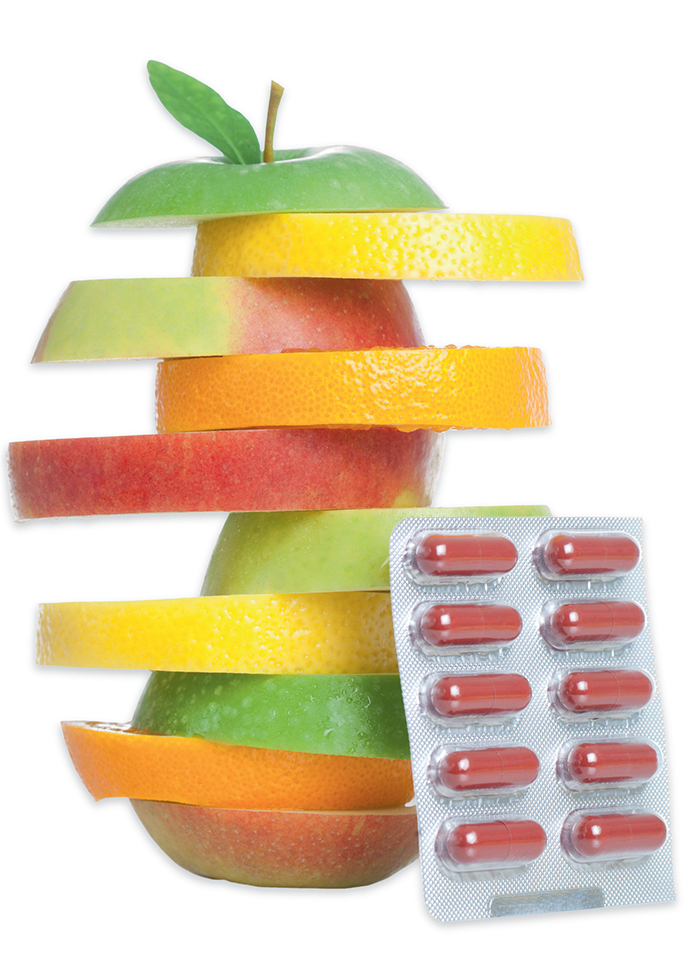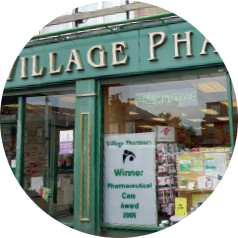Population Health

Trends towards health and wellness
In Population Health
Bookmark
Record learning outcomes
The trend towards healthy living presents pharmacy with an ideal opportunity to engage with customers and grow their wellness activity
 According to market research company Euromonitor International, the £350 million vitamins and dietary supplements market is led by Holland & Barrett and Boots, which had 12 per cent and 9 per cent value shares respectively during 2015. Not only do they offer a wide range of products at attractive prices, they also enjoy strong consumer trust.
According to market research company Euromonitor International, the £350 million vitamins and dietary supplements market is led by Holland & Barrett and Boots, which had 12 per cent and 9 per cent value shares respectively during 2015. Not only do they offer a wide range of products at attractive prices, they also enjoy strong consumer trust.
The trend towards health and wellness, and the fact that consumers are taking an increasingly proactive approach to their health and seeking to improve underlying conditions rather than just treating symptoms, means there is an opportunity for pharmacy teams to engage with them.
And while some consumers are turning to fruit and vegetables and making smoothies, this isn’t for everyone, and supplements are an important addition to advice about a healthy diet.
Seasonal opportunity
Rasmus Henriksen, national sales manager of Pharma Nord UK, says the winter months are important for the immune health and vitality category. “People become more susceptible to colds and flu during the winter months,†he says. “As a result, it is important to stock immune-boosting ranges, including beta glucans, zinc and selenium, which are in short supply in modern diets.â€
In addition, the shorter days and extended periods of darkness can mean people start to feel low and lack energy, he says. “There are links between vitamin D deficiency and seasonal affective disorder (SAD), which usually begins in the autumn and continues throughout the winter months.â€Â He believes there is an opportunity for pharmacies to offer vitamin D testing and to supply high-quality supplements.
Hugo Pengelley, Spatone brand manager, concurs that the winter months are key for the category. “In winter we are more likely to come into contact with viruses that could cause colds or flu, so it’s important that our immune systems function normally,†he says. “Vitamins and minerals help maintain a healthy immune system.â€
Numark’s information pharmacist Michael Stewart takes a different view. “The best way to obtain vitamins and minerals is directly from the food sources themselves,†he says. “They are much more biologically available from a food than from a tablet.â€
He concedes, however, that it is human nature to want a quick fix to a problem, meaning customers are likely to want to buy a product to help if they are feeling run-down or under the weather, and he emphasises the importance of patients sticking to doses and being wary of products with no proven efficacy.
Cathy Crossthwaite, Numark’s marketing coordinator, agrees that it’s a significant time of year for the category, so having the correct range is important. “With the Christmas and New Year period over, customers are looking to the fresh start of spring to maintain health and prepare for the summer months, and the vitamins category is a great place to start,†she says.
Category management
Ms Crossthwaite believes the vitamins category is a necessity for pharmacy. “It is expected that every pharmacy stocks a range of vitamins and minerals to meet customers’ needs,†she says, but admits that the vast range of products available can be baffling for customers. “Vitamins can be a confusing category for customers, with many knowing the key vitamins and their uses, such as vitamin C and cod liver oil, but not understanding the benefits of all vitamins.â€
There is a variety of ways in which pharmacy teams can help reduce this confusion, for example by being available to provide information and advice and ensuring the fixture is easy to navigate.
Fixture perfect
To help customers navigate the fixture and choose appropriate products, Numark recommends splitting the products into the relevant sub-categories and signposting these using point of sale materials, such as shelf edge strips. “We would also recommend the use of point of sale such as barker cards to help explain the different benefits of vitamins at the fixture,†says Ms Crossthwaite. “This allows customers to easily self-select without necessarily having to ask a member of staff. Some customers prefer this.â€
In addition, making use of own-label products, which often follow a recognised colour code, can help customers to distinguish between the different products and their uses. “Customers will use these colour references to help them navigate the fixture,†says Ms Crossthwaite.
“Point of sale material is extremely important to increase awareness of any immunity and vitality range,†says Mr Henriksen. In-store events offering free nutritional advice can also help to drive traffic into store and highlight a particular range. In addition, he advocates appointing a brand specialist for each supplement range to help improve the category performance.
Key to this is training. “It’s important to fully understand the specific benefits of each brand and product in order to effectively explain their value to customers,†says Mr Henriksen. Pharma Nord offers an eight-module distance-learning course to achieve a Certificate in Nutritional Supplements. The course is approved by the National Pharmacy Association and covers topics including antioxidants and free radicals, energy metabolism and blood sugar control.
Mr Pengelley agrees that advice and product knowledge are important. “Pharmacists can play a key role in helping consumers maintain a healthy lifestyle throughout the winter months,†he says. “By giving advice tailored to customers’ specific needs, which is especially good to do in the context of diet and nutrition, the shopper feels they are coming away from the experience with more knowledge through education. It is also important to provide the customer with clear guidance on a variety of different products, what they’re for and their various benefits, including natural healthcare options.â€
Brand awareness
There is a variety of own-label products available as well as key selling brands. In fact, the vitamins category is one in which own-label dominates. Numark, for example, holds about 20 per cent of the total vitamins and minerals category with a range of more than 30 products in a variety of formats. Packaging is colour-coded to aid selfselection with clear labelling that indicates their suitability for vegetarians and vegans.
“There are some key brands which shout to the customers that they have located the vitamins category such as Seven Seas, the brand leader within joint care, holding 32 per cent of the sub-category, and Berocca, a fairly new brand but very well-known due to its presence on TV and uniqueness in the market,†says Ms Crossthwaite. “Berocca holds 11 per cent of the energy category.â€
It’s important, therefore, to stock the key brands that draw consumers to the fixture, but also to have a range of own-label products that offer value for money, because price is key for many consumers.
“The products sold in a pharmacy should reflect the superior knowledge that consumers expect from a qualified pharmacist,†says Mr Henriksen. “The pharmacist should demand product-specific research on the exact formulation of supplements they offer. These trials should demonstrate the bio-availability, efficacy and safety of each product. Premium products with documented therapeutic effects create loyal, repeat customers.â€
Future trends
While there are many drivers for growth within the market, Euromonitor International predicts that the future for vitamins and dietary supplements will deliver mixed market performances, affected by increasing consumer scepticism leading to declining sales in some sectors. Specifically, it expects to see a doubledigit value decline in products that contain evening primrose oil, echinacea, garlic, St John's wort, starflower oil and vitamin E.
Competition from combination dietary supplements and multivitamins will also affect many areas, with single vitamins, for example, set to experience half a percentage point decline, according to the company. Being aware of market trends, stocking the right range of products, having your fixture merchandised correctly and training your staff will ensure you are best placed to make the most of the category at this important time of year.
Customers are looking to the fresh start of spring to maintain health and prepare for the summer months
Comment
 Fiona McElrea, Whithorn Pharmacy, Whithorn “We do get a lot of people looking for advice on immunity when there are a lot of bugs going around. People want to talk about a particular condition or if they think they’re anaemic or similar. Having the product to hand when you give advice is key. I’ll use a product as a starting point and show them what’s in it, what the suitable vitamins are and when they can and can’t take it. However, struggling to get stock can be quite frustrating sometimes. We sell multivitamins, glucosamine, primrose oil and cod liver oil and we sell a lot of Metatone as a pick-me-up tonic, for people who are run down. Vitamins value packs tend to be our main sellers. Multibionta is popular, and a lot of people would like to see it prescribed through the minor ailments scheme, but our health board doesn’t agree.’
Fiona McElrea, Whithorn Pharmacy, Whithorn “We do get a lot of people looking for advice on immunity when there are a lot of bugs going around. People want to talk about a particular condition or if they think they’re anaemic or similar. Having the product to hand when you give advice is key. I’ll use a product as a starting point and show them what’s in it, what the suitable vitamins are and when they can and can’t take it. However, struggling to get stock can be quite frustrating sometimes. We sell multivitamins, glucosamine, primrose oil and cod liver oil and we sell a lot of Metatone as a pick-me-up tonic, for people who are run down. Vitamins value packs tend to be our main sellers. Multibionta is popular, and a lot of people would like to see it prescribed through the minor ailments scheme, but our health board doesn’t agree.’
Â
 Nemesh Patel, Day Lewis Pharmacy, Chelmsford “This is fast becoming one of the most important markets within our pharmacy. Although it is competitive, if you invest time in supporting and training your teams and pharmacists as our company encourages – you will reap the benefits in terms of both customer satisfaction and retail sales. I have found consumers are taking an increasingly proactive approach to their health and seeking to improve underlying conditions rather than merely treating symptoms. This is resulting in many of our customers opting for eye health supplements or multivitamins.â€
Nemesh Patel, Day Lewis Pharmacy, Chelmsford “This is fast becoming one of the most important markets within our pharmacy. Although it is competitive, if you invest time in supporting and training your teams and pharmacists as our company encourages – you will reap the benefits in terms of both customer satisfaction and retail sales. I have found consumers are taking an increasingly proactive approach to their health and seeking to improve underlying conditions rather than merely treating symptoms. This is resulting in many of our customers opting for eye health supplements or multivitamins.â€
Â
 Rena Dadra, Village Pharmacy, Harlington “Everyone around here seems to be really into healthy living at the moment. There are lots of people coming in with colds and flu, who want advice on immunity. Eating and drinking the right things is vitally important, or their immune systems could be weakened. Smoothies and juicing can be quite a good way of getting the nutrients in when needed. We suggest products such as Biokult, probiotics, vitamin C and zinc and sometimes suggest Metatone. We usually recommend vitamin C and zinc when someone comes in with a cold because we’ve found it really helps. We do like to give people all the options, though, because what works for one customer might not work for another. Training is important for the pharmacy team, and knowing what vitamins will help with which conditions is vital.â€
Rena Dadra, Village Pharmacy, Harlington “Everyone around here seems to be really into healthy living at the moment. There are lots of people coming in with colds and flu, who want advice on immunity. Eating and drinking the right things is vitally important, or their immune systems could be weakened. Smoothies and juicing can be quite a good way of getting the nutrients in when needed. We suggest products such as Biokult, probiotics, vitamin C and zinc and sometimes suggest Metatone. We usually recommend vitamin C and zinc when someone comes in with a cold because we’ve found it really helps. We do like to give people all the options, though, because what works for one customer might not work for another. Training is important for the pharmacy team, and knowing what vitamins will help with which conditions is vital.â€
Â
